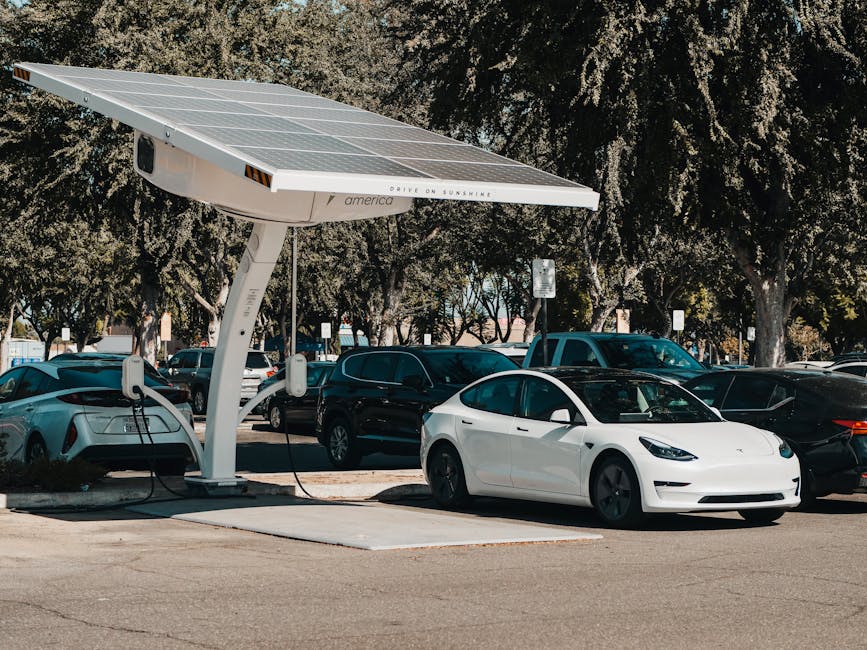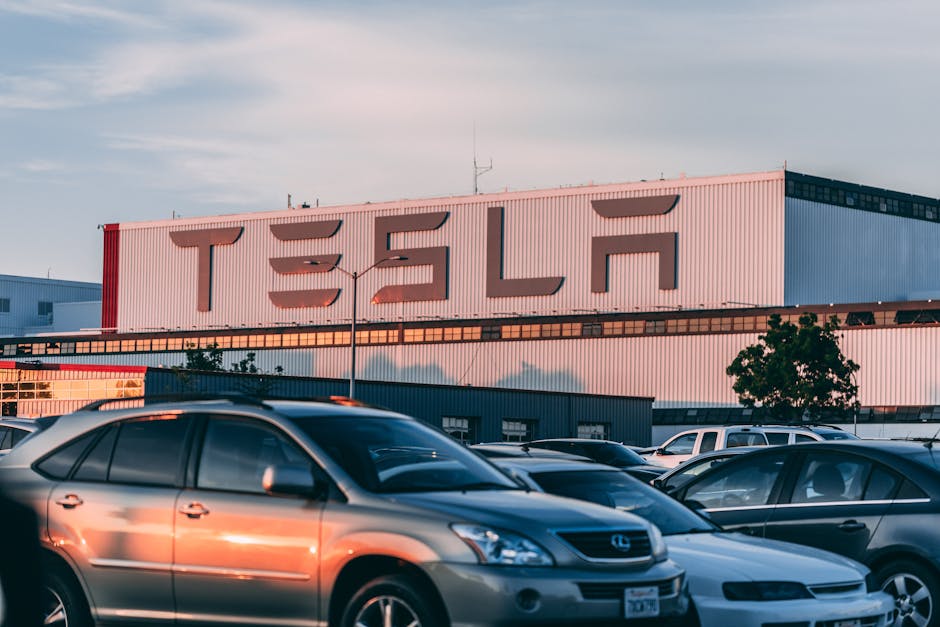How Electric Cars Are Changing Transportation
Did you know that by 2040, it’s estimated that over half of all new car sales will be electric? This shift isn’t just a trendit’s a revolution. Electric cars are changing how we think about transportation. From reducing pollution to reshaping our cities, their impact is profound. In this article, we’ll explore how electric vehicles (EVs) are transforming our roads and lives.
What Makes Electric Cars Different?

Electric cars run on batteries, not gasoline. This key difference is what sets them apart. Traditional cars burn fuel, producing harmful emissions. In contrast, electric cars produce zero tailpipe emissions. This means cleaner air for everyone.
Here are some basic components of electric cars:
- Battery: Stores energy to power the car.
- Electric Motor: Drives the wheels with electric power.
- Charging Port: Where you plug in to recharge.
Imagine changing your car’s “fuel” from gasoline to a power outlet. that’s the basic idea! Charging an EV can happen at home, at work, or at public charging stations.
Why Are Electric Cars Becoming Popular?

Several factors are driving the rise of electric cars. Here are some key reasons:
- Environmental Benefits: Reducing carbon footprints is important to many. EVs contribute to cleaner air and less pollution.
- Cost Savings: While EVs can have higher upfront costs, they save money over time. Electricity is usually cheaper than gas, and maintenance costs are lower.
- Government Incentives: Many governments offer tax credits and rebates to encourage EV adoption.
As battery technology improves, electric cars are becoming more affordable. This makes them accessible to more people than ever before.
Are Electric Cars Really Better for the Environment?

Yes, electric cars have a smaller environmental impact than gasoline vehicles. However, it’s essential to consider the bigger picture. The production of batteries involves mining and manufacturing, which can be harmful. Yet, when you drive an EV, you produce zero emissions.
According to the Union of Concerned Scientists, electric cars produce about half the emissions of a gasoline car over their lifetime, even when accounting for battery production. This means every electric mile driven contributes to cleaner air.
What Challenges Do Electric Cars Face?

Despite their advantages, electric cars face some hurdles:
- Charging Infrastructure: Not all areas have enough charging stations. This can make long trips challenging.
- Range Anxiety: Many worry about running out of battery on the road. Most modern EVs can travel between 200 and 300 miles on a full charge, but that’s still less than many gasoline cars.
- Initial Costs: While prices are decreasing, EVs can still be expensive upfront, which can deter potential buyers.
Addressing these challenges is crucial for the growth of electric vehicles. Companies and governments are working together to create solutions.
How Are Cities Adapting to Electric Vehicles?
As more people drive electric cars, cities are adapting. Heres how:
- More Charging Stations: Cities are installing charging stations in public areas, making it easier for drivers to recharge.
- Incentives for EV Owners: Some cities offer free parking or reduced tolls for electric vehicles.
- Urban Planning: Cities are redesigning streets to accommodate EVs, including more bike lanes and pedestrian areas.
These changes not only support electric car use but also promote a healthier, more sustainable urban environment.
How Are Automakers Responding to the Electric Car Trend?
Car manufacturers are taking note. Major companies are investing heavily in electric vehicle technology. For example, Ford has committed to spending over $30 billion on electric vehicles by 2025.
Here are some notable shifts in the industry:
- New Models: Many brands are releasing new electric models, from compact cars to SUVs.
- Innovation: Companies are researching better battery technology to increase range and decrease charging time.
- Sustainability: Automakers are focusing on sustainable production methods.
This shift is not just about keeping up with trends. It’s about redefining the future of transportation.
What About Electric Trucks and Buses?
Electric vehicles aren’t limited to cars. Electric trucks and buses are also making waves. Companies like Tesla and Rivian are leading the charge in electric trucks, while cities are adopting electric buses for public transport.
- Electric Trucks: They promise lower operating costs and reduced emissions. Imagine delivery trucks that run quietly and cleanly!
- Electric Buses: Cities are rolling out electric buses. They help reduce air pollution in urban areas while saving money on fuel.
These vehicles are changing the logistics and public transport industries, making them more eco-friendly.
what’s the Future for Electric Cars?
The future looks bright for electric cars. Experts predict that as technology advances, electric vehicles will become even more efficient and affordable. Here are some trends to watch:
- Improved Battery Technology: Research is focused on creating batteries that last longer and charge faster.
- Widespread Charging Networks: More charging stations will make EVs practical for everyone.
- Autonomous Driving: Some electric vehicles will incorporate self-driving technology, changing how we think about transportation.
As electric vehicles become mainstream, they could reshape our entire approach to transportation.
How Can You Get Involved?
Want to join the electric vehicle revolution? Here are some steps you can take:
- Educate Yourself: Learn more about electric cars and how they work.
- Consider Buying an EV: If you’re in the market for a new car, think about going electric.
- Advocate for Charging Infrastructure: Support local initiatives to install more charging stations.
Every step counts in supporting a cleaner, greener future.
Conclusion: Embracing the Change
Electric cars are not just altering the automotive industry; they are reshaping our world. From cleaner air to innovative city designs, the impact of EVs extends far beyond the pavement. This transformation is a call to action for everyonedrivers, city planners, and manufacturers alike.
As electric cars continue to evolve, so too will our transportation systems. The road ahead is bright, and it’s electric!
For more information on electric vehicles, check out the U.S. Department of Energys Electric Vehicles page. You can also explore our related post on the benefits of sustainable transportation.



